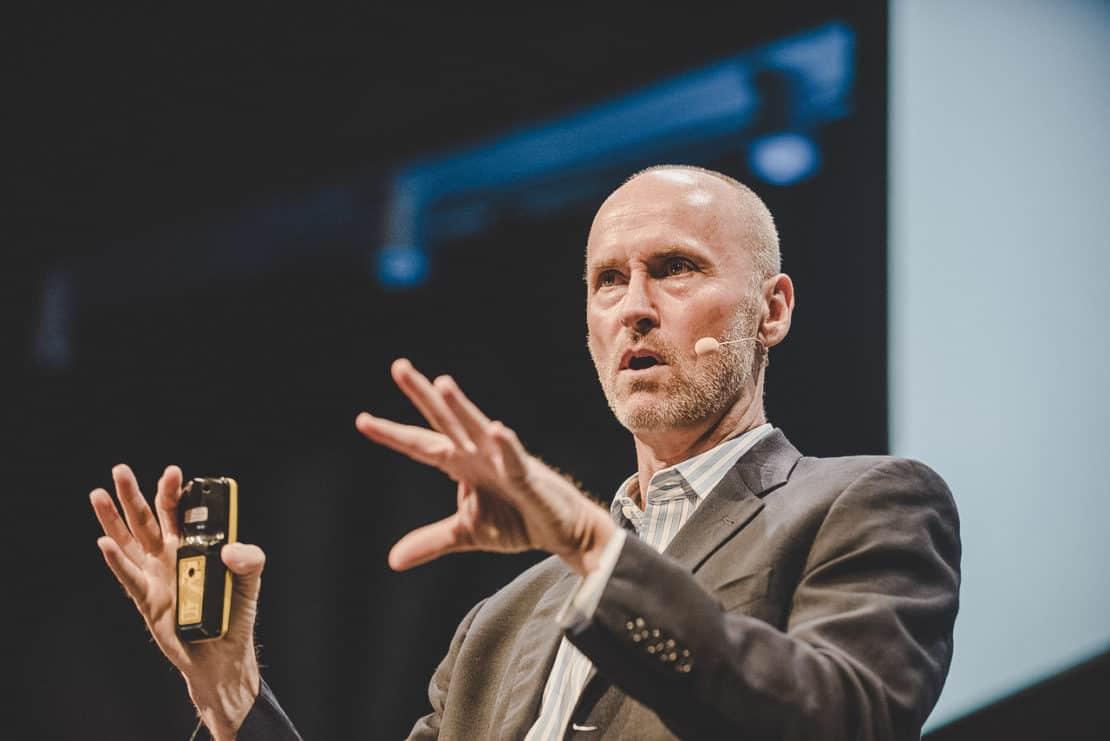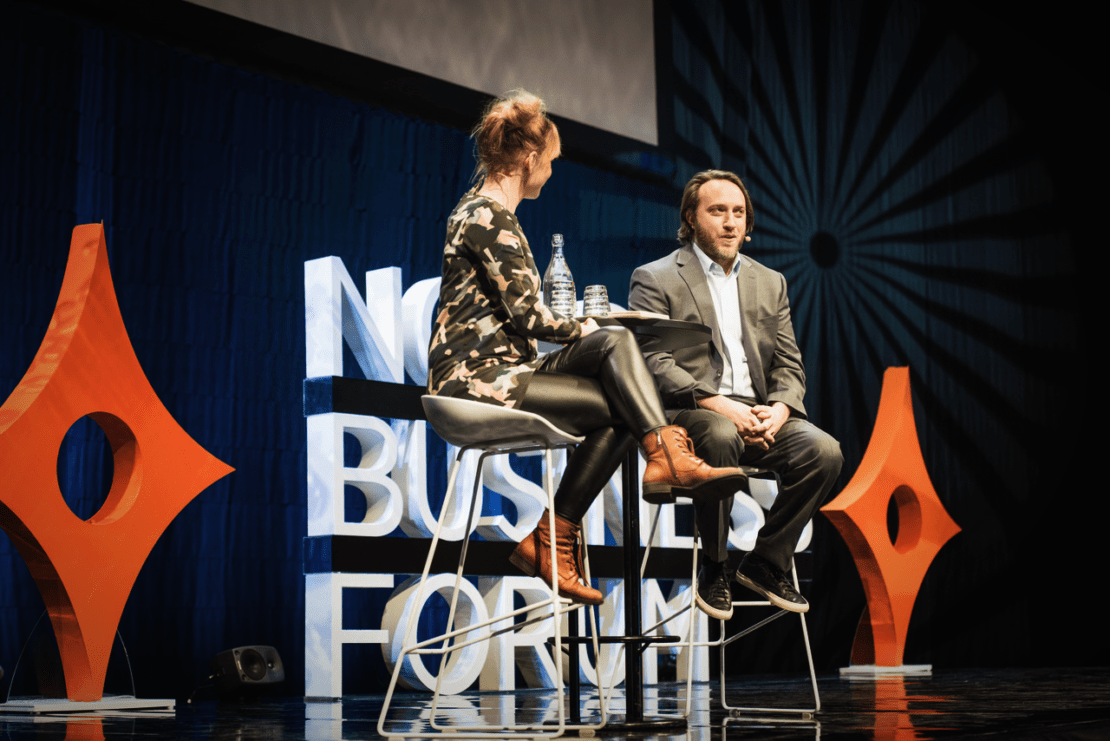13Mar2017
How Airbnb is changing the way we do business and interact with the new consumer.
Disruption seems to follow Chip Conley, Global Head of Hospitality at Airbnb. First, he created dozens of boutique hotels that elevated and diversified the traveler’s experience. Then, four years ago, he joined Airbnb, the giant disrupter of traveling. Conley tells the audience of Nordic Business Forum that he didn’t set out to disrupt the hotel industry, but he’s happy that he jumped onboard with Airbnb.
To disrupt, or not to disrupt
Conley says the interesting part of surfing is determining if you should or shouldn’t ride the wave that’s on the horizon. Especially if it’s a wave of disruption, should you get on or not? “Disruption often looks stupid in the early days,” he says. It looks that way because there’s a culture clash between the establishment and the challengers. Disruption is merely the point where cultures and values clash.
“The future is here, it’s just not evenly distributed yet,” the speculative fiction writer William Gibson once said. Conley uses this quote to describe how he felt when Airbnb’s founders approached him. “I had blinders on,” Conley says. “A lot of us have blinders on.” But he quickly learned that Airbnb was growing and had a dilemma: The founders were two designers and one engineer. “Not one had a travel or hospitality background. They asked me to join them to make it a hospitality company,” Conley says.
Conley’s three rules of innovation
1. Innovation doesn’t arrive without foreshadowing.
If you look closely, there are always clues. The foreshadowing for Airbnb and the home sharing trend was threefold: Boutique hotels, companies that helped people rent their homes or find tenants, and home swapping.
2. Innovations address an unmet underlying human need.
Conley talks about Maslow’s Hierarchy of Needs, where basic needs are at the bottom of the pyramid, then psychological needs, and then self-fulfillment needs at the top. Great innovations happen when an industry has the basic needs met but doesn’t realize anything more is required. The need Airbnb met was a traveler’s desire to stay like a local for cheap. Conley says that from an hotelier’s perspective, why would anyone want to stay like a local when they could stay in a hotel?
3. Over time, the establishment embraces changes, and those innovations become a long-term trend.
“Once people realize that the wave is good, the establishment says ‘Let’s ride that wave’ but other people who got on earlier will get farther.”
This cycle of innovation repeats itself throughout history as what’s new becomes old and needs to be reinvented again. Conley describes the history of the hospitality business where first the need was for reliable hotels, but then hotel chains overcorrected for predictability. Boutique hotels became popular because they offered unique experiences. Conley was one of the hoteliers launching boutique hotels where each one was a taste of local flavor. “No one called us disrupters, but that’s what we were doing with boutique hotels,” Conley says. “People wanted something to talk about.” Today major hotel chains have made their versions of boutique hotels, so it must be time for a change.
Expanding hospitality
On his first day at Airbnb, Conley talked to the whole company. He shared this quote from Gandhi, “First they ignore you, then they ridicule you, then they fight you, and then you win.” This quote, Conley said, would define Airbnb for the next few years.
Today, Airbnb is dramatically larger than the global boutique hotel industry. “Four years ago when the founders approached me and said they wanted my help with taking their home sharing company and turning it into a hospitality giant, I turned to hoteliers, and they thought I was crazy,” Conley says. But after researching what was going on underneath the surface, he decided to ride the wave. And it’s making a lot more sense now. The average stay at Airbnb is twice as long as hotel stays, and 30-40% of people who stay with Airbnb wouldn’t have made the trip if the company didn’t exist. These statistics are in line with the growing number of digital nomads who have no primary home by choice.
Something that’s usual for disruptive businesses is a slow start. Airbnb had a great first weekend followed by a difficult three years. “It took a while to take root,” Conley says. Part of this was people becoming comfortable with the idea and using Airbnb. Now, it’s growing so fast that the numbers on Conley’s slides, only created a few months ago, are already out of date. Currently, there are about 3.2 million homes on Airbnb in 34,000 cities with over 100 million users.
Live and die by the feedback loop
Four years ago, Conley asked Airbnb’s founders a question: “I’ve spent my career being an hotelier, and I know how to create a great hotel environment. I know how to do that with my employees, how can I create a dependable experience with people who aren’t my employees? The hosts aren’t our employees. How can we influence them?” The answer was and is in peer-to-peer reviews.
Here’s a tip from Conley: look at your feedback loop. How has your company created a useful way for people that provide service to know how they’re doing and improve? In the hotel business, the loop doesn’t work. Conley asks the audience, “How many of you fill out the online survey after visiting a hotel?” About five percent raise their hands, and that’s in line with the overall numbers.
The average hotel employee never gets feedback from the mere 5% of people who give it. Why? More than half of hotel employees last less than a year, and they only get a formal review at their one year anniversary. Now it’s no wonder why the hotel business customer satisfaction rates have flatlined.
In direct contrast, Airbnb is a community where 70-75% of hosts and guests review each other within 14 days. A guest can give private feedback directly to Airbnb or directly to the host. With an excellent feedback loop, people don’t have to be employees to do a good job.
Conley closes by reminding us that when surfing you don’t need anything besides the water and board. When you surf, you act on a hunch about a particular wave. Conley says it’s the same in entrepreneurship. There is no rule book. Act based on your gut and get ready to ride the wave.
This article is a part of the Executive Summary of Nordic Business Forum SWEDEN. Get your digital copy of the summary from the link below.


